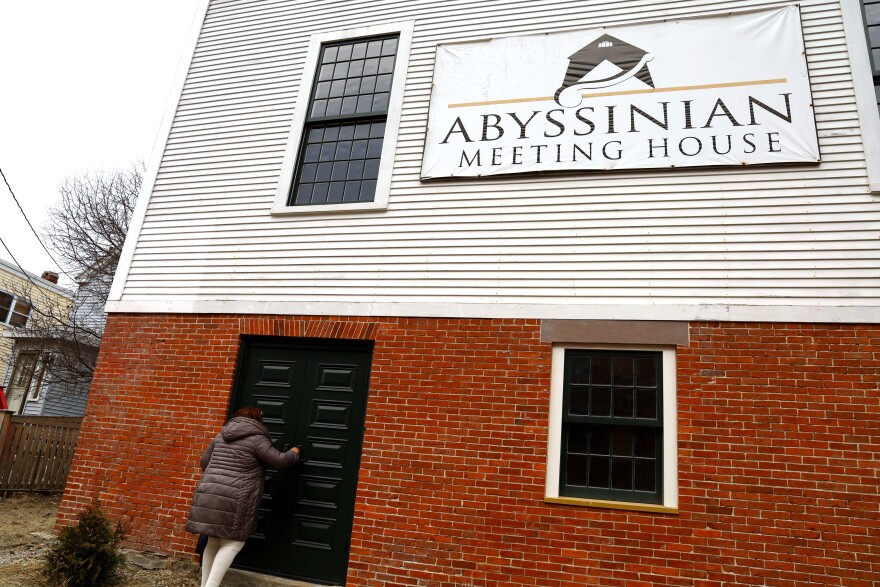Standing in the cavernous wooden interior of the Meeting House In Portland's Munjoy Hill neighborhood, Pam Cummings pointed out part of the floor that has been replaced and some of the older boards that remain from the original construction, as well as bits of history etched into the floor.
"The marks here are where the pews were," Cummings said, indicating where the benches used to sit.
The Abyssinian Meeting House in Portland is recognized as one of the most important sites of African American history in the state. Built in the 1820s, the meeting house served as a church, a school for African American children, and a hub of anti-slavery organizing.

Now, Cummings leads a local group - The Committee to Restore the Abyssinian Meeting House - which, for about 25 years, has been working to bring the historic building back to life.
This week, Cummings gave a tour to Congresswoman Chellie Pingree, who secured $1.7 million in federal funding which will go toward interior construction, a new museum exhibit space, and an elevator to make the building ADA compliant, among other improvements.

Cummings described the money as a “game changer” that will allow her group to finally finish the project. She said restoring the church is a crucial step in elevating African American history in Maine.
"We have a history too," Cummings said. "We do belong, and our people did great things."
Cummings said the church is important to national history as well, as many of its leaders and congregants were deeply involved in helping escaped slaves through the Underground Railroad.
"They fought tirelessly against slavery. The anti-slavery society of Maine was founded here," she said.

Pingree said the restoration group should receive the funding soon, after President Biden signs the federal budget this week. Once the building is restored and open to the public, Pingree said it could play a role in broadening the lens through which the state’s history is seen.
"So often, the history of Maine is really told through the eyes of white people," Pingree said. "We never talk about the indigenous people. And we rarely talk about the history of Black people in Maine and how they contributed to, really, American history."
Cummings said her group aims to complete the restoration within the next year, and open the building to the public soon after.




